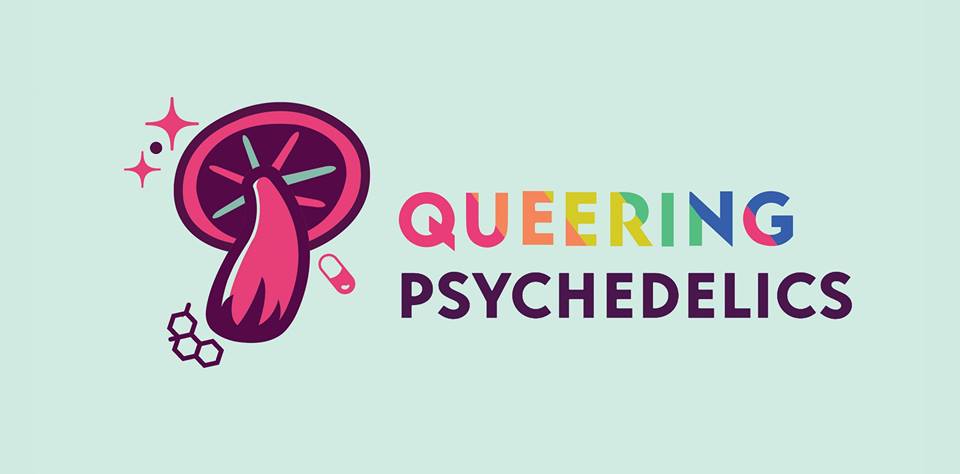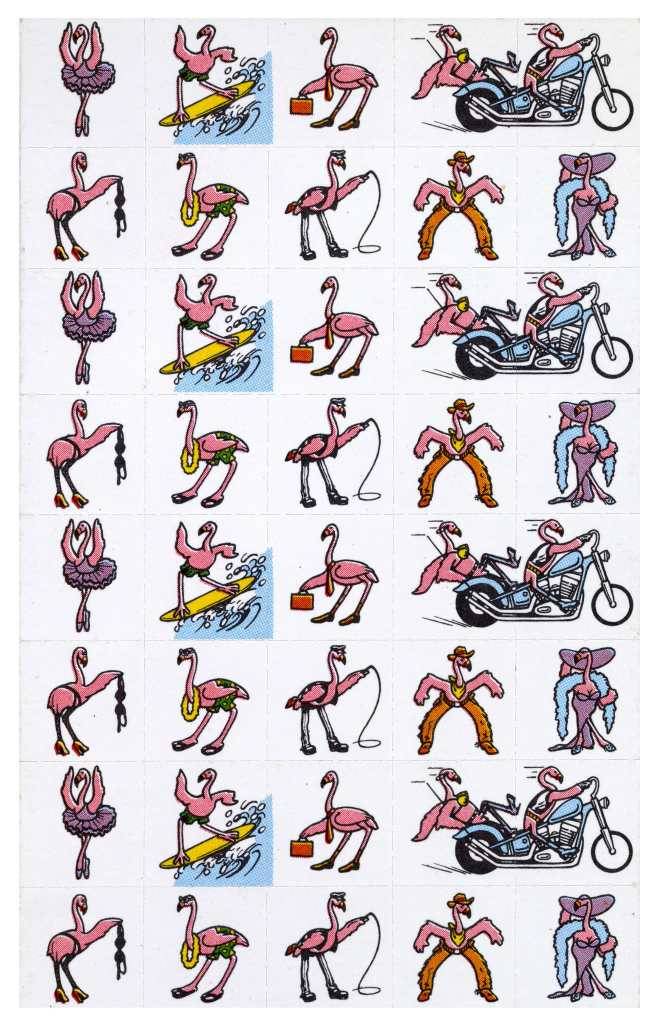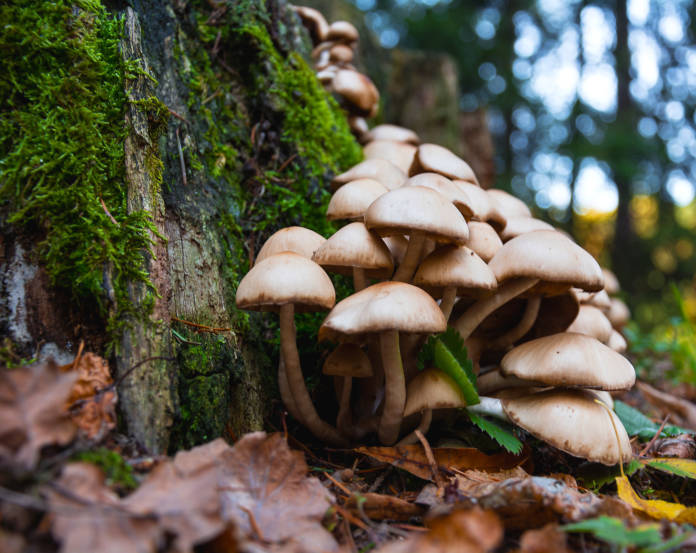Psychedelics are having a moment that’s turning into a movement. Shrooms are being decriminalized. MDMA is being (re)approved for post-traumatic stress therapy. Ketamine is being investigated as a viable anti-depressant. Microdosing LSD is all the rage in the work cubicles to keep mental energy up. The cannabis legalization ball is already rolling, right around the corner lies a psychedelic revival.
With all this heightened interest in the therapeutic effects of psychedelics—not to mention their cultural explosion as part of the exponentially expanding music festival scene, which traces its roots back to that original Lucy in the Sky miasma, Woodstock—there’s been a contemporary re-examination of the history of psychedelic usage and development via U.S. colonialism (the co-opting of sacred aboriginal psychedelic practices for recreational use) and institutional racism (the imprisonment of disproportionately large amounts of Black and Brown under unjust drug laws.) Both are hot, worthy topics, as is the deconstruction of the traditional straight, male hippie experience as the cornerstone of psychedelic development.
In fact, some of the biggest public names in psychedelic exploration in the last half of the 20th century were queer: Allen Ginsberg, William S. Burroughs, Ram Dass. Or, as Erik Davis puts it in his introduction to his talk at the highly anticipated Queering Psychedelics conference (June 1 and 2 at Brava Theater Center), called “A Brief History of Queer Psychedelia”:
“Psychedelic experience in the modern era has always been queer—not just in the sense of being enchanted, wayward, and weird, but in the more concrete sense that queerfolk have fundamentally shaped the substance, style, and spirituality of the psychedelic underground. The mass arc of the counterculture, from the ’60s to today, is inconceivable without all manner of psychedelicized style queens, love-bomb DJs, and Dionysian mystics, including Hibiscus and the SF group the Cockettes, Loft party progenitor David Mancuso, the Radical Faeries, and the Sisters of Perpetual Indulgence, who helped establish the social mores of Burning Man.”
Thanks to queer exploration, transcendence, and marginalization, the freedom (and necessity) to experiment has been wrapped up in queer identity since forever. At one of the seminars at Queering Psychedelia, Kanyon Sayers-Rood offers an “indigenous, two-spirit perspective on the ecology of the land we stand on” in the context of sacred sites and respect for the plants from which some psychedelics are derived.

Other fascinating parts of the weekend include “A Queer Critique of the Psychedelic ‘Mystical Experience,'” which looks at the narrow range of experience represented in the popular imagination; a queer view of how music has been important throughout the history of psychedelic usage; a seminar on how psychedelics can help cure HIV that considers strategies that queer people and people of color “have used to survive, before anyone realized we were left out of clinical research,” plus panels, social meetups, and more.
The speakers are a diverse set of experts in their field, and the subjects range from pop culture to the highly technical. Legendary Grateful Dead historian Steve Silberman will speak about coming out as queer in jam band communities. HIV advisor consultant Dee Adams will talk about addressing the needs of gender and sexually diverse people in psychedelic medicine. Ethnobotanist Claudia J Ford addresses “Gendered Knowledge and the Decolonization of Etheogenic Plant Medicines.”
“This is the first conference like this of its kind. It’s very exciting,” said Dr. Bia Labate, who is organizing Queering Psychedelics. I met Labate, a queer Brazilian who has spent years in the psychedelic community, at Quetzal Internet Cafe on Polk Street in March. She specializes in the study of plant medicines, drug policy, shamanism, ritual, and religion, and is the executive director of the Chacruna Institute for Psychedelic Plant Medicines.
The idea for the conference came about when Labate was attending a seminar that was part of the well-known Horizons psychedelics conference in New York. “There was a breakout session that involved issues that affected the queer psychedelics community,” she said. “They said, anyone who wants to talk about queer issues further, please move to this side of the room. Well, almost the entire room got up and moved over there.
Help us save local journalism!
Every tax-deductible donation helps us grow to cover the issues that mean the most to our community. Become a 48 Hills Hero and support the only daily progressive news source in the Bay Area.
“That really pointed out the need for a queer-specific conference where we could explore and address psychedelics history and current developments in a queer context, in a queer space,” Labate said. She sees some unique opportunities for connection within the community about shared traumas and how psychedelics can be useful in addressing the bullying and stigma queer people face.
“We have been persecuted throughout much of the history of the world, and yet we’ve managed to thrive and make our own spaces. This includes mental and mystical spaces, which have been seen as forms of both transcendence and escape,” Labate said. “We talk a lot about gentrification and losing physical spaces, but as psychedelics become more mainstream, there’s a risk of losing the other countercultural spaces we’ve created in order to survive as well.”

She has concerns about the rise of psychedelic therapies in a mainstream psychiatric context that doesn’t specifically incorporate queer identities. “Psychiatry and therapy have often been the enemy of LGBT people. Conversion therapies, the historically gendered binary of medical treatments, the erasure of our history—these have been harmful things for us. As therapies are being developed using psychedelics, we want to ask, Who is doing the training? How are they including this vast repository of queer knowledge? Are they using it responsibly?”
Labate herself has used ayahuasca systematically for 22 years. “It’s central to who I am, and I am deeply grateful for this medicine,” she says. She has watched as ayahuasca has become trendy, and the changes that has brought to indigenous communities.
“These are the kinds of things we need to talk about in a queer context. We’re bringing new voices and different experiences together across the spectrum of what we experience, to share our own knowledge—and of course have fun. That’s definitely a dimension of psychedelics, too,” she said.
QUEERING PSYCHEDELICS
June 1 and 2, 9am-6pm
Brava Theater Center, SF.
Tickets and more info here.






